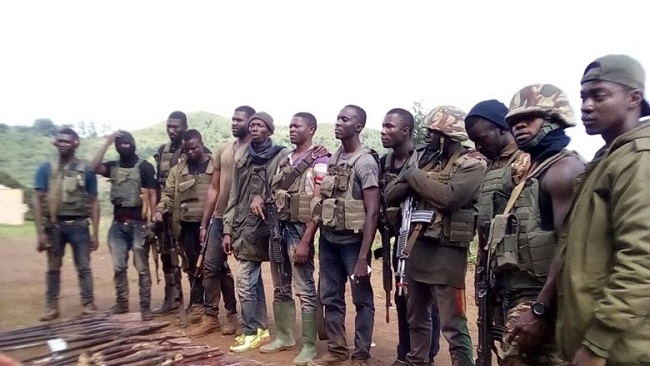There is something going on in Southern Cameroon. Locals speak of a genocide that isn’t being talked about. For this reason Anonymous Bites Back invited local activists, including the Ambazonia Tigers to come on the podcast.
The current crisis in Southern Cameroon started in October 2016 when lawyers and teachers went on strike over the use of French in courts and schools. In October 2017, activists declared autonomy over the two English-speaking regions – a move rejected by Cameroon’s President Paul Biya. Some took up arms in 2017 and the crisis has forced more than 500,000 people from their homes.
Critical issues of governance in Cameroon and the unfair domination by the Francophone political class have historically attracted little external focus. However, this perception has changed due to the economic and political upheaval in the country known as the Anglophone crisis or the Ambazonian war, which is a long standing dispute between the government of Cameroon and independent separatists from the Southwest and Northwest (Southern Cameroons) region.
Generally little understood by Francophones, the Anglophone problem dates back to the independence period. A poorly conducted re-unification, based on centralisation and assimilation, has led the Anglophone minority to feel politically and economically marginalised, and that their cultural difference are ignored. The Anglophones of Cameroon, 20 per cent of the population, feel marginalised. Their frustrations surfaced dramatically at the end of 2016 when a series of sectoral grievances morphed into political demands, leading to strikes and riots. The movement grew to the point where the government’s repressive approach was no longer sufficient to calm the situation, forcing it to negotiate with Anglophone trade unions and make some concessions.
The crisis is a particularly worrying resurgence of an old problem. Never before has tension around the Anglophone issue been so acute. The mobilisation of lawyers, teachers and students starting in October 2016, ignored then put down by the government, has revived identity-based movements which date back to the 1970s. These movements are demanding a return to the federal model that existed from 1961 to 1972. Trust between Anglophone activists and the government has been undermined by the arrest of the movement’s leading figures and the cutting of the internet, both in January. Since then, the two Anglophone regions have lived through general strikes, school boycotts and sporadic violence.
Anonymous Bites Back decided to shed a light on this situation, and decided to give a voice to those unheard by the general public.
Facts:
- On 1 January 1960, the French colony of Cameroun gained independence and became Cameroon.
- On 1 October 1960, Nigeria gained independence from the UK.
- The UK also controlled the former German colony of Cameroon. At independence, its citizens were given a choice of joining either Nigeria or Cameroon.
- Southern Cameroonians opted to unite with Cameroon, while Northern Cameroon joined Nigeria.
Watch the full podcast here:
If you want to learn more about this situation, use hashtag #GenocideInSouthernCameroons on social media.
And remember to subscribe to the Youtube channel of Anonymous Bites Back to be updated about new podcasts!
